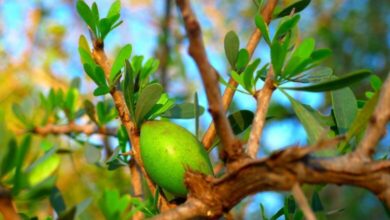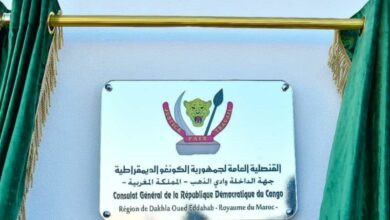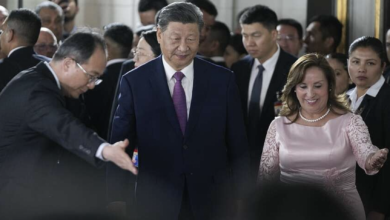Oman to Celebrate 54th National Day this Monday
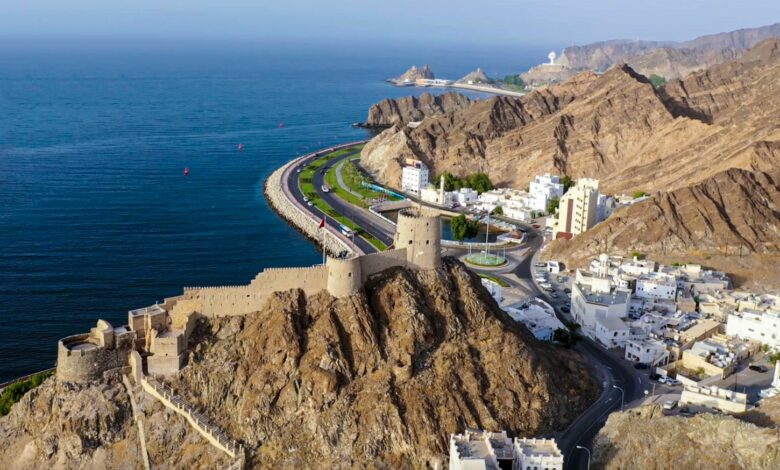
ALDAR/
The citizens of Oman and various state institutions have rendered an indispensable contribution to the continuous achievements in the path of the comprehensive developmentduring the renewed renaissance of His Majesty Sultan Haitham bin Tarik, who has outlined a wise and sound visionthat leads to progress and prosperity in all fields.

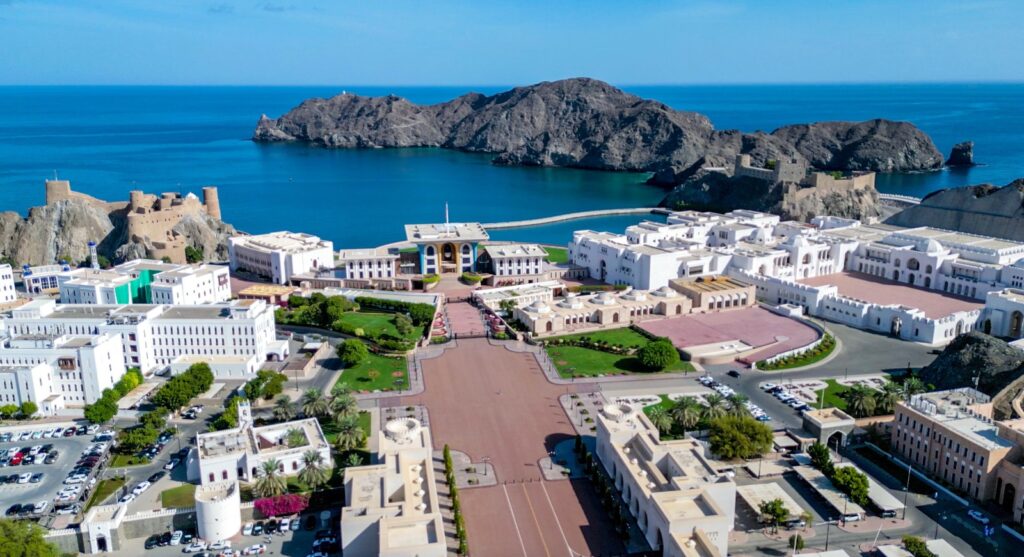
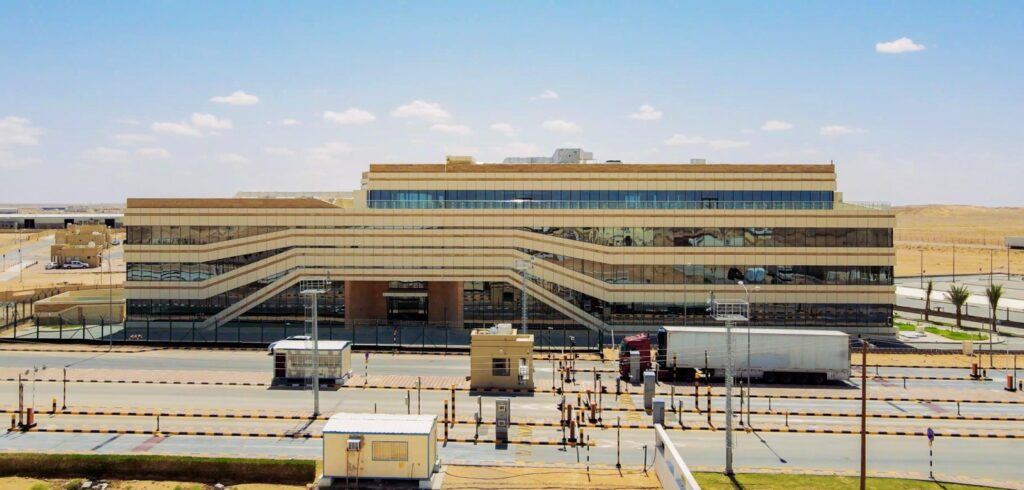
His Majesty’s directives to all state institutions to continue improving the missions entrusted to them and to develop appropriate conditions to upgrade performance at all levels have contributed positively over the past five years toachieving success in various targets of Oman Vision 2040.
The government of His Majesty the Sultan has managed to improve the state’s economic and financial performance andreduce debt and increase the gross domestic product; as the state’s public revenue at the end of August 2024 amounted to RO 8.106 billion, up by RO 183 million compared to RO 7.923 billion registered over the same period in 2023.
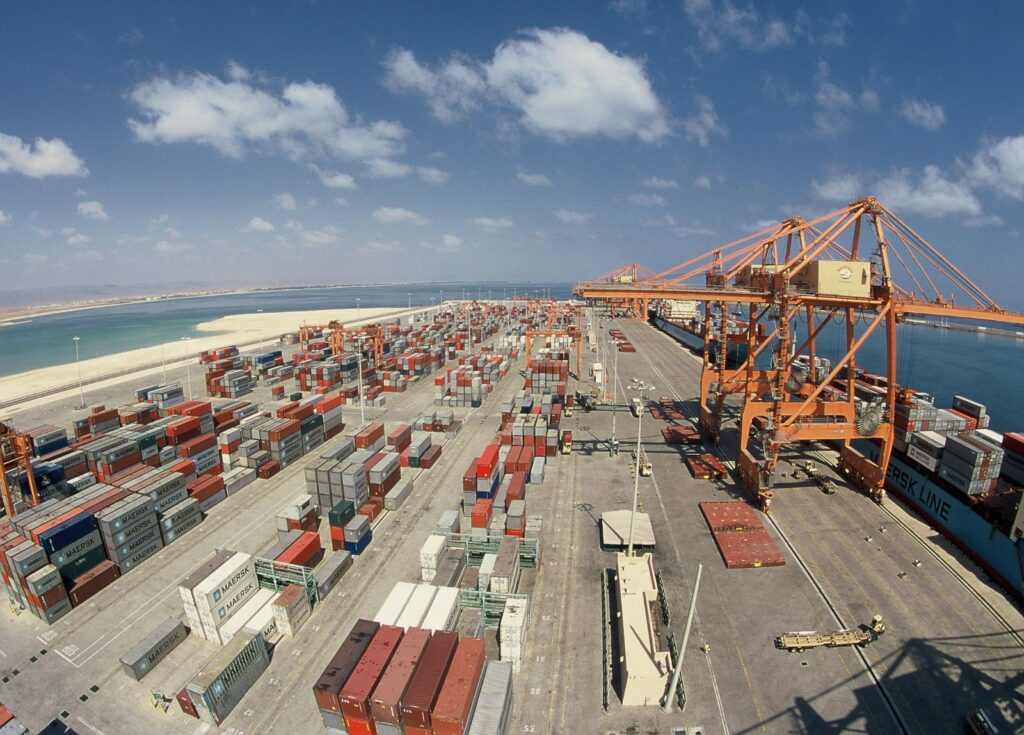
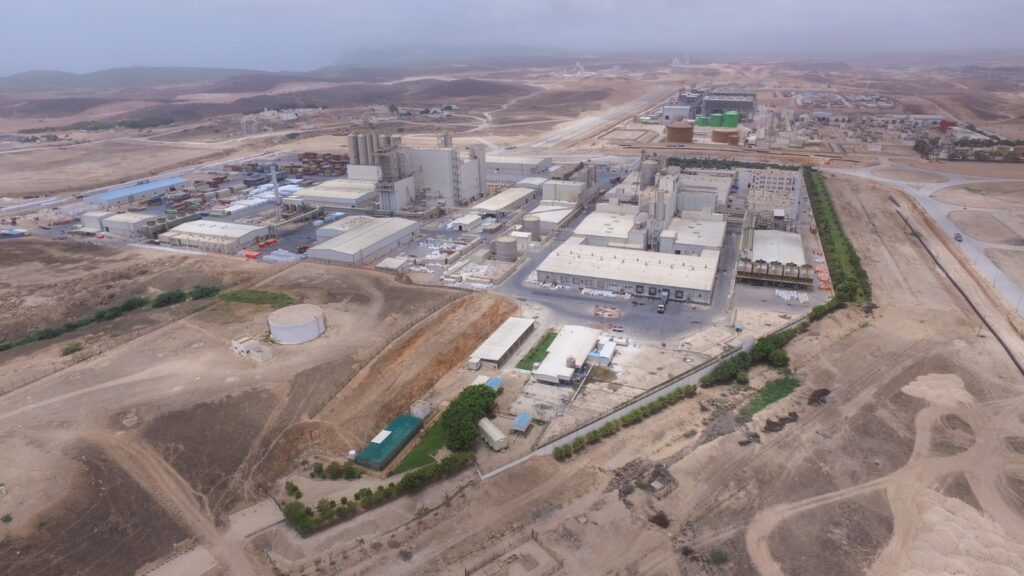
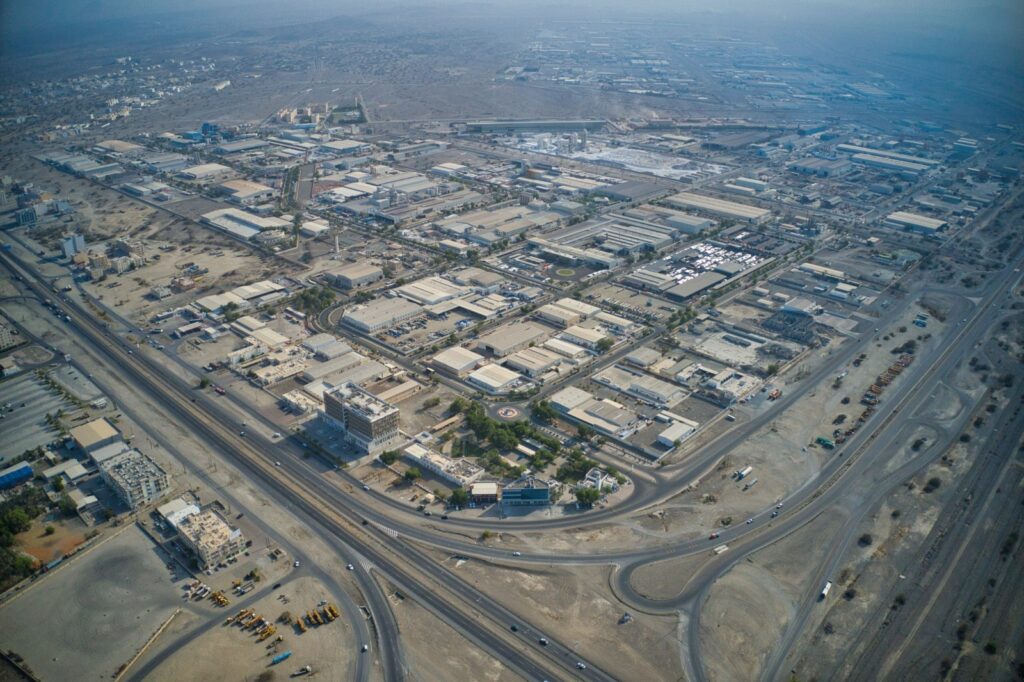
The state’s general budget until August 2024 achieved a surplus of about RO 447 million, while the public debt portfolio declined by the end of June 2024 to RO 14.4 billion, compared to RO 20.8 billion in 2021.
The Sultanate of Oman also launched this year (2024) the social protection system by unifying and merging pension funds, and restructuring the schemes.
Oman succeeded in reducing the ratio of public debt to GDP from 62.3 percent in 2021 to 35 percent in mid-2024 and achieving a budget surplus for consecutive years, recording 2.7 percent and 2.2 percent in 2022 and 2023, respectively.
This has led to a remarkable improvement in the credit rating of the Sultanate of Oman by credit rating agencies, as Standard & Poor’s raised its second credit rating for the Sultanate of Oman to “BBB-” from “BB+” with a stable outlook. Further, Moody’s revised its outlook for the Sultanate of Oman from a stable to a positive, confirming the credit rating at “Ba1”.
These ratings affirm that the Sultanate of Oman is a safe investment environment, as it returned to this rating category after a decline of nearly 7 years (since 2017) due to the repercussions of the crises resulting from the slupm in global oil prices and the Covid-19 pandemic.
Moreover, the Sultanate of Oman has also advanced in many international indicators, as it rose 39 ranks in the 2024 Index of Economic Freedom issued by the Heritage Foundation to obtain the 56th place globally after being ranked 95th globally in 2023. In the Entrepreneurship Index, it came in the 11th place globally, advancing 27 places from its ranking in 2022/2023. It also came in the 50th place globally in the Environmental Performance Index after being ranked 149th in the 2022 ranking.
In the education sector, Sultan Qaboos University (SQU) achieved a remarkable progress in the 2025 World University Rankings to obtain the 362nd place, advancing 92 places from its previous classification.
The Sultanate of Oman also advanced 10 ranks in the Global Innovation Index issued by the World Intellectual Property Organization (WIPO), to obtain the 69th place globally out of 132 countries included in the index; as Oman achieved the highest performance in: (human capital, research, and infrastructure). Oman also advanced 9 ranks in innovation outputs and came among the top 20 countries globally in 5 sub-indicators, including: second place globally in the percentage of government spending per student, in addition to the 16th place globally in the availability of information and communication technologies, and the 19th place globally in doing business, as it jumped 93 ranks in the growth rate of labour productivity compared to its ranking in the 2022 index.
Meanwhile, the volume of foreign direct investments (FDI) in the Sultanate of Oman until the end of the fourth quarter of 2023 amounted to RO 25.05 billion, an increase of 21.6 percent compared to the same period in 2022, which amounted to RO 20.59 billion.
Regarding the government investments, Oman Investment Authority (OIA) is exerting sincere efforts to make the Sultanate of Oman an attractive investment destination and achieve sustainable economic development. The Authority’s assets increased to RO 19.2 billion compared to about RO 17.9 billion at the end of 2022. It contributed to achieving profits exceeding RO 1.7 billion, and supporting the state’s general budget with an amount of RO 800 million, and repaid RO 300 million of loans from its subsidiaries before their due date in 2023.
The OIA invests in 13 global funds, such as the Platinum Investment Fund and the Global Infrastructure Fund, in addition to direct investments in global companies, such as the American “Our Next Energy” Company and the Australian “Hysata”.
One of the most important strategic projects that were inaugurated at the beginning of this year (2024) is the DuqmRefinery and Petrochemical Industries Project in the Special Economic Zone at Duqm (SEZAD).
The refinery is the largest joint investment project between the Sultanate of Oman and the State of Kuwait, integrated between the Omani OQ Group and Kuwait Petroleum International Company, with a capital exceeding RO 3.5 billion.
The Sultanate of Oman has witnessed the implementation of many projects in the field of renewable energy, most notably Manah Solar Power Project with a production capacity of 1,000 megawatts located in A’Dakhiliyah Governorate, IbriSolar Power Project with a production capacity of 500 megawatts located in A’Dhahirah Governorate, Barka Solar Power Project with a production capacity of 500 megawatts located in South Al Batinah Governorate, the Amin Solar Power Plant Project with a production capacity of 100 megawatts located in Dhofar Governorate, Sohar Solar Power Project with a production capacity of 100 megawatts in North Al Batinah Governorate and Dhofar Wind Farm with a production capacity of 50 megawatts located in Dhofar Governorate.
The Sultanate of Oman is pressing ahead with boosting public and private sectors partnership, as the private sector is the key driver of the economic development and GDP growth in various sectors. The private sector also contributes remarkably to the economic diversification efforts, as it is a peer to the public sector in social development through the contribution of its institutions to education, health and social investment.
Oman Vision 2040 has placed the private sector in a position to lead a competitive national economy linked to the global economy. The private sector has embarked on enhancing efforts to elevate the national economy through exploring the opportunities offered by incentive initiatives, such as the National Program for Private Sector Development and Foreign Trade “Nazdaher” and financial incentive and sustainability initiatives, along with enhancing partnership with the government sector.
The private sector is also the incubator environment for national capital investment, as it relies primarily on individual initiatives, whether in the form of personal companies or joint-stock companies, in addition to hosting innovative ideas and transforming them into projects that benefit society through entrepreneurs and small and medium enterprises(SMEs). The sector is also the main component for attracting foreign investment, whether by providing effective partnerships in qualitative projects or by providing the requirements for these projects through local content of products and services.
The total volume of added investment in all industrial cities affiliated to the Public Establishment for Industrial Estates (Madayn) during the first half of 2024 exceeded RO 177 million, bringing the total volume of investment in all these cities, including Knowledge Oasis Muscat (KOM) and Al Mazunah Free Zone, to more than RO 7.6 billion.
Meanwhile, the number of localized investment contracts reached 2,310. As many as 55,242 employees work in investment projects in all industrial cities, of whom Omanis constitute 38 percent, while the total area of existing and new industrial cities reached 163,176,459 square meters.
The volume of cumulative investment in Sohar Free Zone, Salalah Free Zone and Khazaen Economic City amounted to RO 1.33 billion, covering several sectors, most notably the pharmaceuticals, food, petrochemicals, plastics, logistics, renewable energy sectors and others.
As far as the ports sector is concerned, the ports of Sohar, Salalah and Duqm, which enjoy a globally integrated infrastructure, continue to boost their operational efficiencies to become major berthing stations on various global shipping lines. During the first half of 2024, these ports maintained their operational volumes, handling about 1.8 million containers with a general cargo volume of up to 13 million tons. This figure reflects the ports’ effective contribution to supporting the national economy and enabling Omani exports to reach international markets with a high competitive capacity.
The dry dock in the Special Economic Zone in Duqm(SEZAD), which is classified as the second largest dry dock for ship repair and maintenance in the Middle East and North Africa (MENA Region), was able to implement 106 projects from about 70 countries around the world during the first half of 2024, thanks to its strategic location close to global shipping lines.
In the tourism sector, the Sultanate of Oman has achieved remarkable results in recent years, as the number of tourists increased by 36.7 percent to nearly 4 million tourists in 2023 compared to 2022. The number of visitors coming to the Sultanate of Oman by the end of the first half of 2024amounted to about 2 million, an increase of 3.2 percent. Meanwhile, the number of hotel establishments stands at 895, including 34,378 hotel rooms.
The Sultanate of Oman continues its focus on the comprehensive and balanced development of all governorates through the construction of sustainable cities within the priorities of Oman Vision 2040. This approach is done by channeling investments towards constructing smart cities and developing governorates while applying the principle of administrative and economic decentralization.
Sultan Haitham City project represents the first smart and sustainable project as an integrated city with an area of 14,800,000 square meters. It includes about 20,000 housing units distributed over 19 integrated neighborhoods with various facilities and services.
The progress made by the Sultanate of Oman in many global indicators reflects the determination of the country, as a government and people, to achieve its future aspirations to be among the advanced countries.
Among these indicators is the progress made by Oman in the media index for the second year in a row, ranking 40th globally after advancing 6 ranks in the Global Soft Power Index issued by the British Brand Finance Agency for 2024, compared to the 46th place in 2023.
It also advanced in other sub-indices, such as advancing 10 ranks in the Sustainable Future Index and 5 ranks in the Positive Impact Index.
The Sultanate of Oman also achieved qualitative progress in the Global Environmental Performance Index for 2024, advancing 99 places from the previous ranking (where it was ranked 149th globally), to occupy the 50th place globally in 2024 ranking, which was announced by the Yale Center for Environmental Policy and Law at Yale University in the United States.
The Royal vision of His Majesty seeks to uplift the human thought by furnishing the appropriate environment for establishing qualitative cultural and intellectual institutions.Laying the foundation stone of Oman Cultural Complex at the Airport Heights in Muscat Governorate represents a vivid example of this approach. Oman Cultural Complex seeks to promote cultural, literary, theatrical and research activities through the enhancement of relevant programmes. The moveaims to expand the scope of engagement in highlighting Oman’s cultural heritage and exploring the country’s accomplishments. The complex includes three main buildings, namely the National Theatre, the National Library and the National Records and Archives Authority (NRAA).
On the domestic front, His Majesty Sultan Haitham bin Tarik continues his Royal meet-the-people tours to engage with citizens all over the Sultanate of Oman and listen to their visions and proposals about measures to promote the development of their respective governorates and upgrade economic and service projects.
In continuation of this Royal approach, His Majesty the Sultan held a meeting at the Royal Camp in Saih Al Mahasin in the Wilayat of Khasab, Musandam Governorate, with sheikhs and dignitaries of Musandam, some members of the Council of Oman and members of the Municipal Council and the businessmen community in the Governorate.
Meanwhile, the Council of Oman, represented by the State Council and the Shura Council, is a key partner in this important phase. In exercising its national roles and responsibilities, the Council of Oman relies on the Basic Law of the State and the Law of the Council of Oman, which have defined the paths of work according to clear powers.
During the first convening of the eighth term, the State Council discussed a number of topics, including draft laws referred by the government, in addition to the draft state general budget for the fiscal year 2024. It also held 5 public sessions.
A joint session was also held with the Shura Council to discuss the disputed articles in a number of draft laws, in implementation of the provisions of Article (49) of the Council of Oman’s Law.
On its turn, the Shura Council held, during the same period, 12 regular sessions and dealt with 4 ministerial statements, approved 20 draft laws and agreements referred by the government, and 4 urgent statements.
The municipal councils in various governorates of the Sultanate of Oman work on the basis of decentralization. The government has paid attention to activating the role of these councils and developing their legislations, in translation of the far-sighted vision of His Majesty the Sultan towards enabling them to carry out their developmental and societal roles in accordance with their prerogatives. This approach comes within the priorities of Oman Vision 2040 regarding the development of sustainable governorates and cities.
The Sultanate of Oman also attaches a great importance to the education sector as it is a tool for development and progress.
In this context, the Council of Ministers approved, during a meeting held last September under the chair of His Majesty the Sultan, the allocation of RO 40 million to be added to the current 5-year plan to help accelerate the construction of new schools, in light of a steady rise in number of students in some governorates.
The number of students in public and private schools during the current academic year has exceeded one million male and female students. This year (2024) witnessed the opening of 16 new schools in a number of governorates. Construction of 15 school buildings has also begun and tenders have been floated for 20 new schools.
The teachers represent the cornerstone of the development and progress of Oman’s renewed renaissance. In this context, the Honourable Lady, Spouse of His Majesty the Sultan has stressed that teachers play a vital role in the educational system.
As for the health sector in the Sultanate of Oman, it is witnessing a remarkable development that meets the aspirations of the government and Oman Vision 2040. This progress is reflected on the health infrastructure and the improvement in the quality of services provided to citizens and residents.
Among the projects that the health strategy focuses on is providing secondary and tertiary healthcare through constructing, replacing, upgrading and expanding hospitals in most governorates. Currently, 9 hospitals are being built with more than 1,660 beds, and 5 other referral hospitals are being expanded. To keep pace with the requirements of primary healthcare to provide basic health services, 15 primary healthcare institutions are currently being constructed, replaced and expanded, in addition to establishing 9 kidney dialysis units.
Meanwhile, the University Medical City, which was established last February, contributes to backing the government’s efforts to upgrade the health sector in the Sultanate of Oman, and providing health services to citizens and residents according to national and international standards. The city includes Sultan Qaboos University Hospital, Oman National Center for Hematology and Marrow Transplantation and Sultan Qaboos Comprehensive Cancer Care and Research Center.
The Medical City Hospital for Military and Security Services – Muscat which was inaugurated by His Majesty the Sultan this month, represents an addition to the efforts of the Sultanate of Oman to provide medical services and healthcare.
The government of the Sultanate of Oman attaches a great importance to the youth due to their vital role in the march of building Oman’s renewed renaissance. This was underscored by HH Sayyid Theyazin bin Haitham Al Said, Minister of Culture, Sports and Youth, when he addressed the Omani youth on their annual day. HH Sayyid Theyazin lauded the thinking, dedication and endeavours of the Omani youth, affirming that Oman relies on them to press ahead with the march of national development.
The Sultanate of Oman has always emphasized upholding the principles of transparency and integrity and applying the approach of accountability in all sectors by boosting the oversight system to achieve national goals. In this context, His Majesty has underscored the importance of simplifying procedures and governing performance, integrity and accountability to ensure full alignment and harmony with the requirements of his vision.
The Sultanate of Oman also continues to extend bridges of cooperation, consolidate the principle of friendship, and strengthen relations with countries of the world.
His Majesty Sultan Haitham bin Tarik’s visits to a number of Arab and foreign countries embody this approach that lays emphasis on cooperation and close diplomatic relations with these countries.
The visits also aim at discussing the existing paths of cooperation with those countries in various fields and exploring opportunities for their development and growth in a way that serves common interests and aspirations.
His Majesty recently made visits to the Republic of India, Republic of Singapore, the United Kingdom, the Federal Republic of Germany, the United Arab Emirates, the State of Kuwait and the Hashemite Kingdom of Jordan.
A number of world leaders also made visits to Oman, including President Dr. Frank-Walter Steinmeier of the Federal Republic of Germany, Sheikh Mishal Al Ahmad Al Jaber Al Sabah, Emir of the State of Kuwait, President Dr. Alain Berset of the Swiss Confederation and President Abdelmadjid Tebboune of the People’s Democratic Republic of Algeria.
During these visits, a number of agreements, memoranda of understanding and executive programmes were signed, covering various areas.
On the political level, the Sultanate of Oman always underlines the pillars of its foreign policy, which is based on the principles of good neighborliness, non-interference in the internal affairs of others, establishing a fair system for the exchange of benefits and interests, establishing the foundations of stability and peace and contributing positively to them.
Oman also believes in dialogue and tolerance as an approach to addressing all issues and challenges to achieve peace. It also believes in relations based on mutual respect, positive cooperation and harmony between countries.
In its speech before the 79th session of the United Nations General Assembly, the Sultanate of Oman affirmed that its leadership, government and people believe in using legitimate and peaceful means to resolve issues and conflicts. From this standpoint, it called for an immediate cessation of fighting and ceasefire in the Gaza Strip, Lebanon and the Red Sea region, and addressing the causes of the conflict by ending the illegal Israeli occupation of the Palestinian territories, achieving justice for the Palestinian people on the basis of the two-state solution and establishing an independent Palestinian state with East Jerusalem as its capital on the 1967 borders.
—- Ends/Sooban/Khalid



